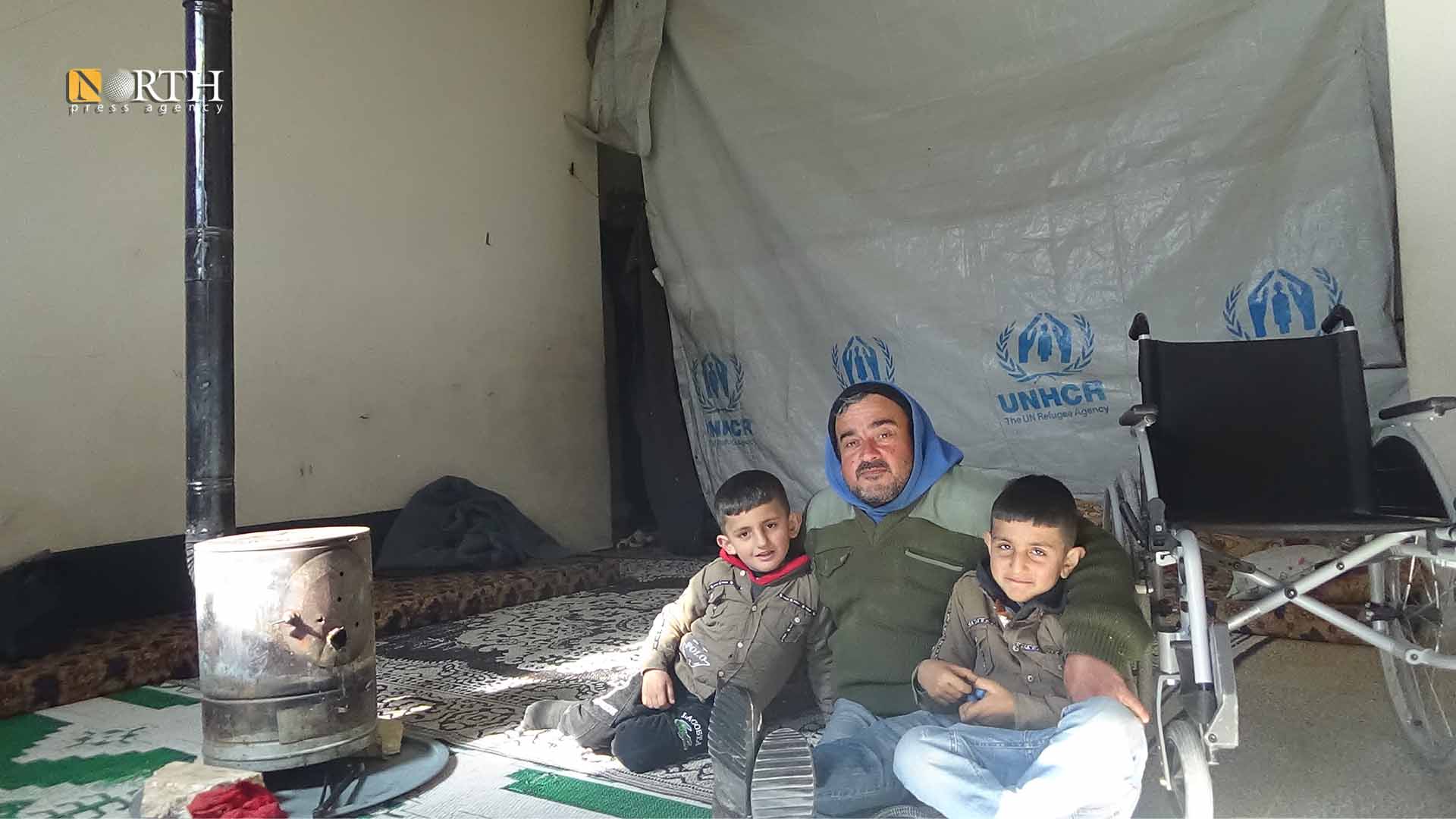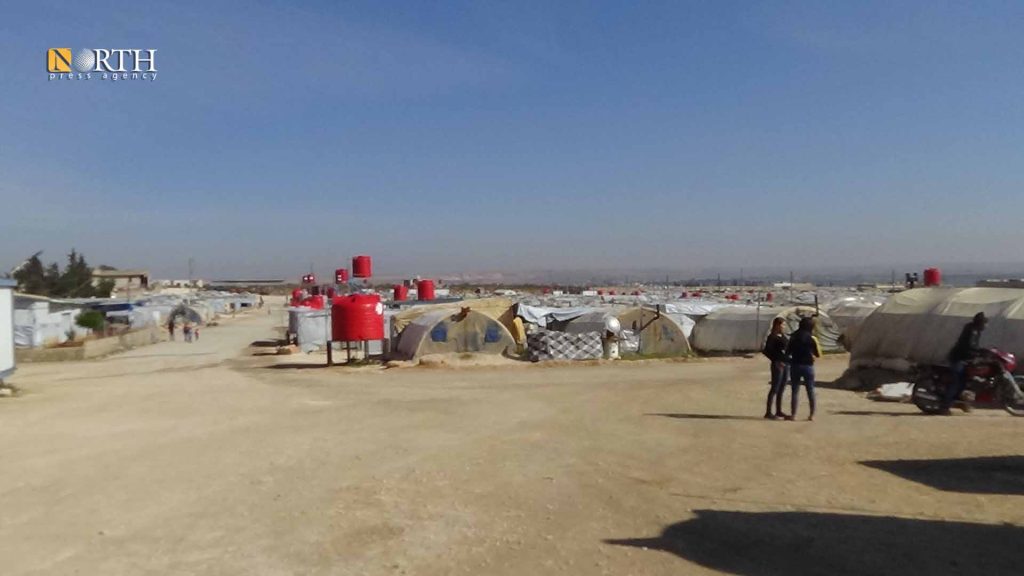
ALEEPO NORTHERN COUNTRYSIDE, Syria (North Press) – Shokri Ayyoub 40, an IDP of Afrin and a disabled person, sits on an old mattress in a room that lacks the simplest necessities of life next to his wheelchair that has been his companion for years.
Ayyoub hails from Kafr Safra village, that administratively follows Jindires district in Afrin. Every day, with the help of his wife, he sits on his wheelchair and goes out to spend one hour or even half an hour in the streets of Babennis village in Aleppo northern countryside.
Ayyoub has been disabled sine he was few months after he was vaccinated against children polio. Moving into adulthood, he tried to adapt with his health condition and even asked a girl from the same neighborhood for marriage. Now he has got two children.
However, his situation worsened following displacement, as he finds it difficult to sustain his family under the poor aid provided to him.
Also, 300,000 civilians were displaced, according to the statistic of the Autonomous Administration which is currently operating in Aleppo northern countryside.
Some of the displaced people took shelter in the camps of al-Awda, Afrin, Barkhodan, Sardam and Shahba while others were distributed in 42 villages and towns in Aleppo northern countryside.
However, other families preferred to live in other cities across Syria, most notably in the Autonomous Administration of North and East Syria (AANES)-held areas and others sought asylum abroad.
Exacerbated suffering
Forced to fled, leaving behind properties and houses, the IDPs of Afrin, in general, face extreme difficulty securing daily needs amid inflation and shortage of support provided by the NGOs. The families that are with disabled children are affected the most.

The IDPs strive more than the other people to face the challenges and the daily obstacles amid the difficult economic conditions and lack of aids.
Many of the handicapped IDPs in Aleppo northern countryside need medicine and physiotherapy in order to be able to walk again and restore back their normal life. But, the area does not contain physicians, medicines and physiotherapy centers.
Ayyoub also suffers high blood pressure, recalls that prior displacement, he had a small shop to sell food supplies and used to depend on it for living.
A new wheelchair was provided to Ayyoub by Avrin hospital in Aleppo northern countryside. “The new wheelchair became my entire life. Now, I can get out,” Ayyoub said.
The Social Care office run by the Board of Social Affairs in Afrin Region, currently functioning in Aleppo northern countryside, used to hand Ayyoub 20,000 Syrian pounds (SYP, around $6) per month and now it offers him 40,000 SYP (around $12).
Now, unemployed, Ayyoub said this sum of money is not enough to sustain for his family. He has asked the office several times to raise the money but in vain.
Poor potentials
“Poor potentials prevent us from increasing the money given to the families with disabled members,” Hevin Shamio, director of Social Care office, said.
The office contacted several charities and organizations to “financially” support the disabled persons, who are the most vulnerable categories. Unfortunately, we get nothing, Shamio added.
The Autonomous Administration of Afrin Region has allocated a monthly salary for the families with the toughest living conditions. The salary varies according to the number of the members of the family.
1,600 disabled IDPs live in Aleppo northern countryside, among them are 130 persons who live in the camps, the community care office said.
Patients in plastic tents
The areas, where Afrin IDPs reside, suffer high cost of food supplies under a siege imposed on them by government forces who control these areas.
Russian military points also exist in the areas.
Zalloukh Battal, a 17-year-old girl who has cerebral atrophy, needs special medication for convulsive disorder. Her family thrives to get her the medicine amid shortage of available medicine.
Battal’s mother, said her daughter’s disease worsens if she gets cold. “The plastic tents creates moisture and are not as warm as houses.”
Battal’s family live in Barkhodan Camp following their displacement from Afrin.
Sitting beside her daughter, the mother said that her daughter’s health condition has worsened after displacement. Their tent is a kitchen, a bedroom, and a bathroom at the same time and this affects her condition.
One package of medicine for Battal costs 16,000 SYP (about $3). She also needs other food complements and vitamins which usually puts an extra burden on her family.
Battal’s father is an employee in an institution run by the Autonomous Administration in Aleppo northern countryside and earns 260,000 SYP (around $150).
“Our situation after displacement became worse,” Battal’s mother added.
